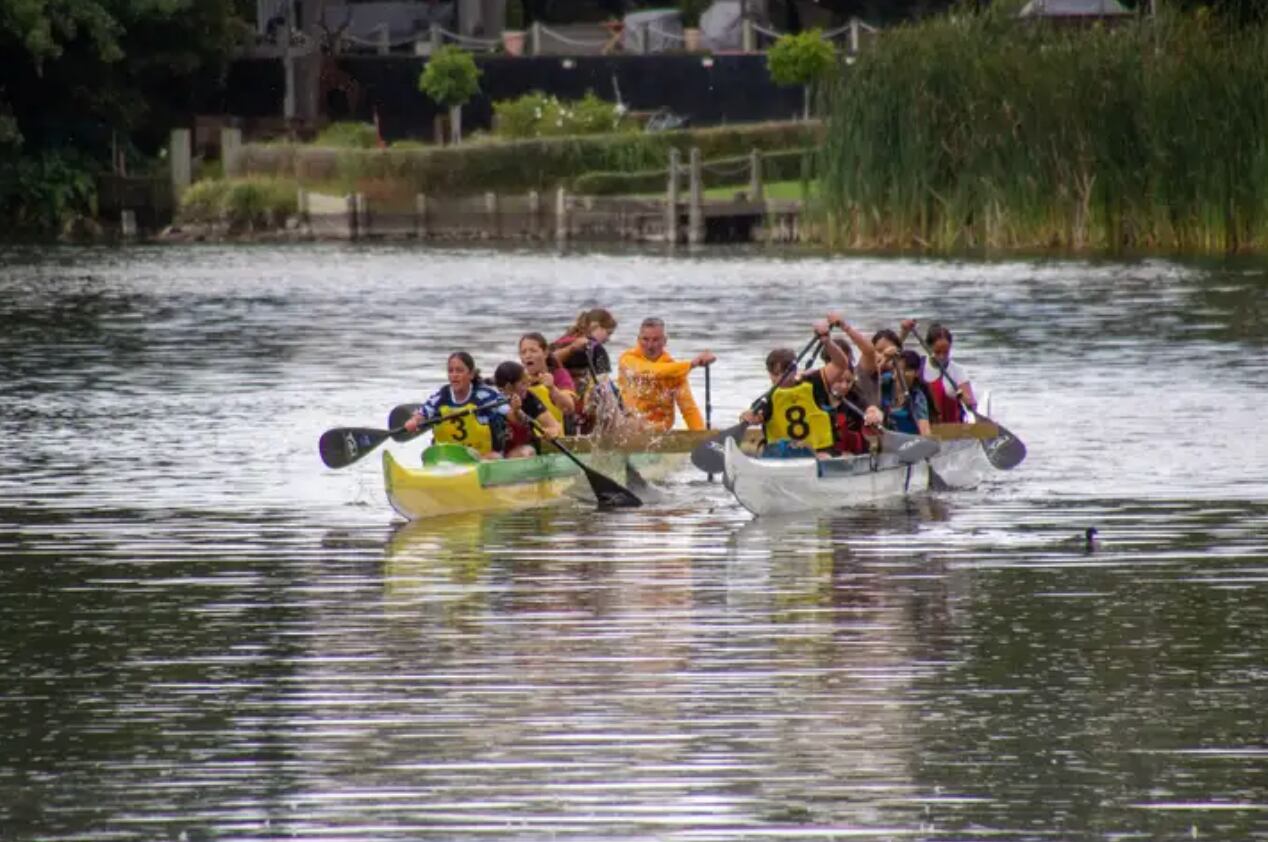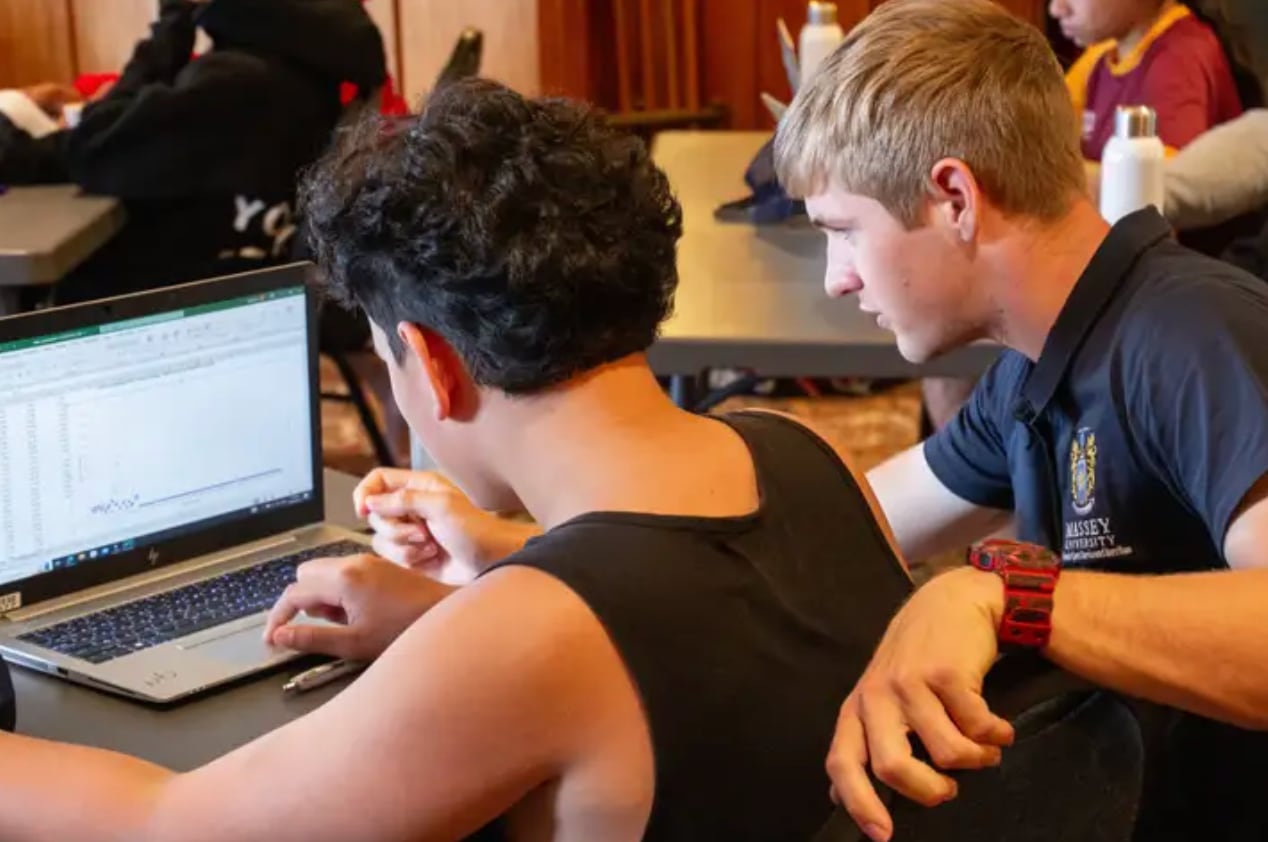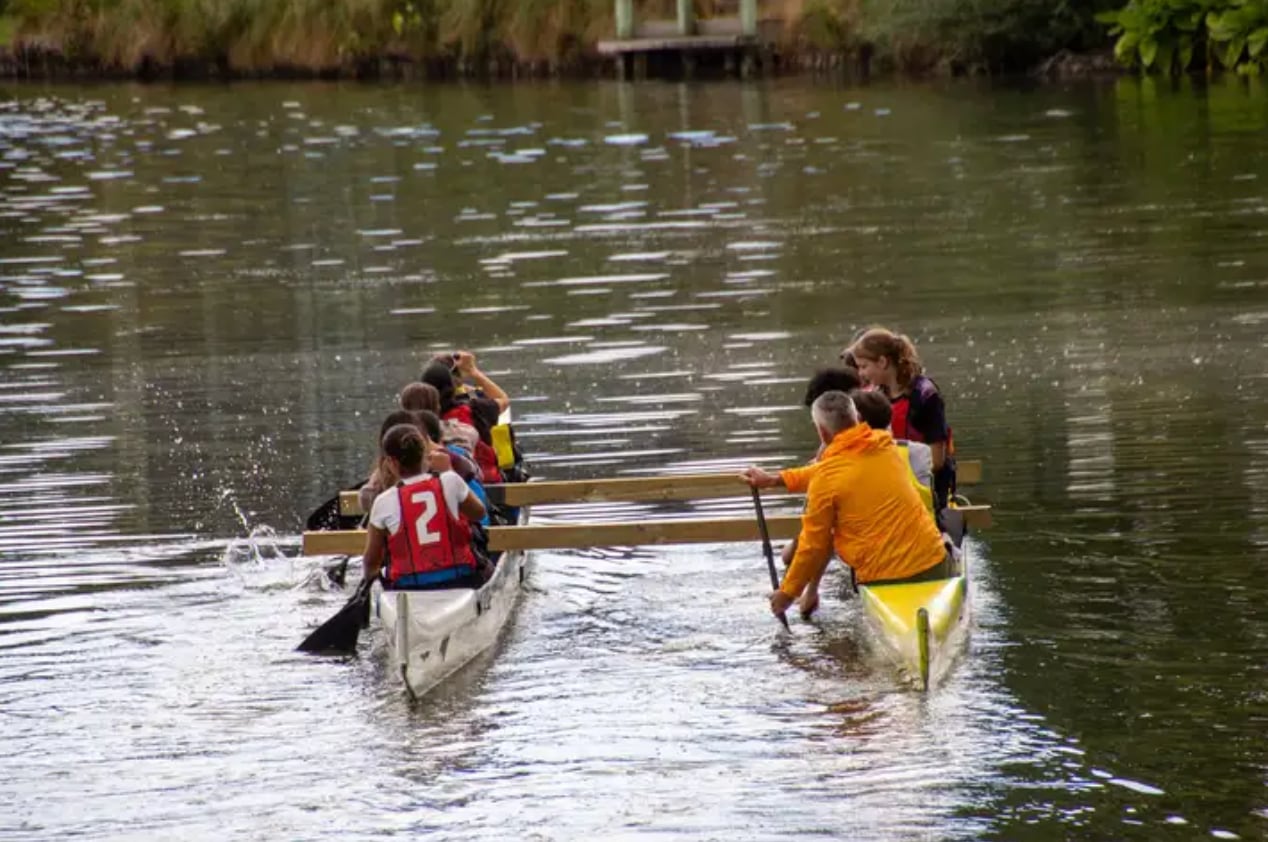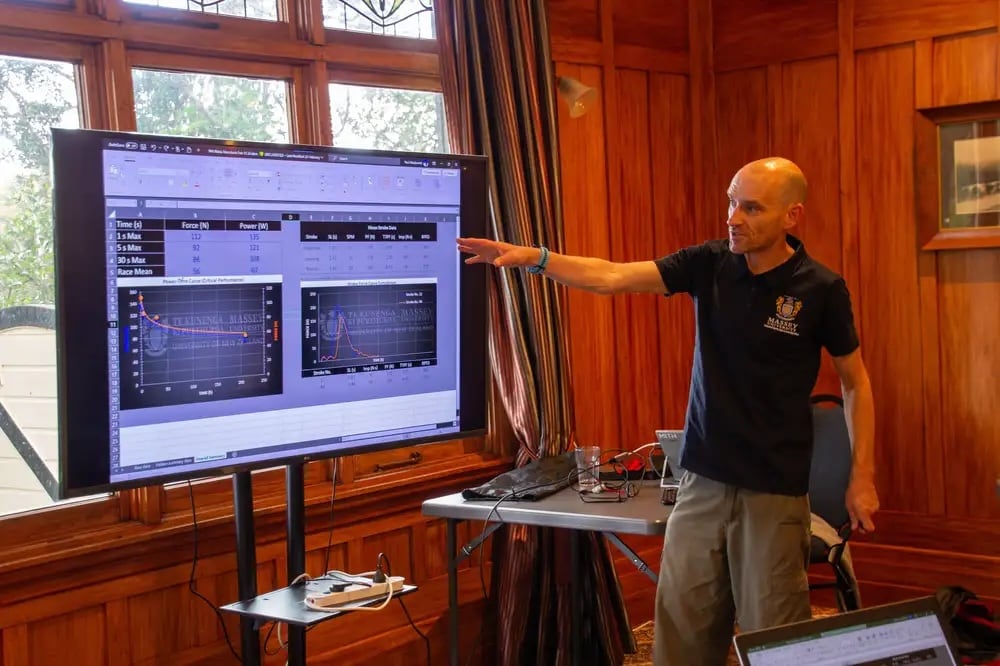The highly successful workshop saw students and staff from the university teach more than 240 rangatahi, mainly Māori and Pasifika, from secondary schools across Te Ika-a-Māui (North Island) about sport science through waka ama.
It was funded by the Ministry of Business, and Innovation as part of its national strategic plan He Whenua Hihiri i te Maha (A Nation of Curious Minds).
But He Whenua Hihiri i te Maha funding was part of budget cuts made by the Labour government last year, which saw $115 million from the Research, Science and Innovation (RSI) portfolio slashed.
Business and Innovation Ministry manager contestable investments Alan Coulson said then finance minister Grant Robertson cut the funding.
“This cabinet decision means that there will be no new funding rounds for Unlocking Curious Minds. However, existing contracts or commitments are not affected by this decision,” Coul said.
Project lead and Sport, Exercise and Nutrition School head Associate Professor Andrew Foskett told Te Ao Māori News the workshop was a major success with the rangatahi, parents and teachers who attended.
“The feedback we got from teachers afterwards - a lot of it was ‘can we come again?’, They want to do it again,” Foskett said
He would like to do the workshop again but without funding it is impossible.
“That’s disappointing because I think it was an excellent model for engaging kids.”
“Now that we’ve done it before, we’ve got the technology, we’ve got the expertise, everything that’s run through, I think we could do it now for much less cost,” Foskett said.
What was the purpose of this workshop?
There was a big push to engage with year 9 and 10 students with Māori or Pasifika backgrounds from lower socioeconomic regions.
“Too many of our young children are switching off from science. They are not choosing the right subjects at school to enable them to then get into year 12 and 13 in science and go off to university to take careers in science,” Foskett said.
The workshop was taken across Te Ika-a-Māui to Tāmaki Makaurau (Auckland), Tairāwhiti (Gisborne), Te Papaioea (Palmerston North), and Taranaki. Orohena Brightwell and Manukura School supplied the wakas used for the workshop.

Te ao Māori and science.
Associate Dean Māori Bevan Erueti ensured mātauranga Māori was available throughout the workshops and translated for kura kaupapa.
He said many of the rangatahi who attended didn’t identify with their Māori identity.
“The idea was to help them understand that waka ama is a part of who they are, a part of their DNA, their whakapapa in terms of the ancestral links that we wanted to connect with.
“The [other] major element of it was our rangatahi seeing themselves as modern-day scientists that connected back to an activity that our tūpuna did every day and understanding that activity,” Erueti told Te Ao Māori News.
“This workshop was also another way for a Western institution to engage with Māori communities in a way where we are guided by the community.”

“We are not going in there to say ‘This is what we want to do’. We’re going in there to say ‘How can we help?’ and ‘How can we be part of your learning?’”
During the process, Erueti said his colleagues probably learned more from the rangatahi than the other way around.
“What we started to see was that my colleagues were starting to get it and also a different perspective on what it means to be Māori, with Māori rangatahi learning from them about their beliefs and their values and what’s important to them.”
Why waka ama?
Sport was not a requirement to apply for the Curious Minds fund but Foskett and his team wanted to inspire Māori tamariki to pursue science through physical activity that was tracked through technology.
“We wanted to target a sport that was relevant to New Zealand, that was relevant to the communities the ministry wanted us to get into, which was heavily in the Māori space.
“We did bounce around a number of sports but I think we landed on waka ama quite early and then the more we looked into it as an opportunity and no pun intended as a vehicle for the learning, it just seemed like a natural fit,” Foskett said.

Erueti thought the idea of using waka ama was the “novel part” of the whole experience.
“Typically we see sports science used with our mainstream sports whether that’s rugby, netball, cricket, football but with waka ama, we just thought ‘well this is something that is linked to us in our DNA’ and so it made sense to use waka ama as a vehicle.”
Many of the students who participated had never been in a waka before, while for others it was second nature.
“Our role in this and the impact was to see no matter whether they were novices or they were experienced that they could see the connection between the sports science was being applied to this activity to waka ama.
“One of the things about bringing science and sports and te ao Māori all together, you see these different synergies and the impact it has on the kids - this idea of seeing their own kind of activity, something that is unique to te ao Māori,” Erueti said.
What’s so special about the paddles?
There are only 12 of these specific hoe in the world and Massey University owns all of them.
The special hoe can pair with a handheld device or a smartwatch to track performance in real-time. It then puts the data into a computer for a more detailed analysis.
“The technology existed and we got involved with a company called One Giant Leap that makes the technology and then we also got involved with Tai Paddles and Tai Paddles make waka hoe,” Foskett said.
Once the students were out of the water, they made their way back to the classroom, where they could see their data and analyse it, and Massey University students explained the science behind their results.

Erueti thinks there are some unique applications that the hoe brings to the workshop.
“It [paddle] was able to pick up on power, it was able to pick up on the ideas of cadence, how many strokes, how strong those strokes are and so what is being reflected is that something that’s important to te ao Māori and connecting the science to that,” Erueti said.
Instead of letting the special paddles, collect dust in the Massey University storage room, one of the third-year students who helped with the programme is using the hoe for a master’s thesis.
